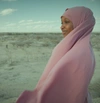MSME created to empower young women sharing information about how to prevent spread of the virus
Anzisha Fellow, Ifrah Arab Mohamed is the founder and CEO of SuperMom, a Kenyan social enterprise empowering unemployed and underemployed women by training them to become independent business owners.
Working with women living in marginalized communities, SuperMom sells fast moving consumer goods such as rice, flour, sugar, and other necessities.
Since 2016, SuperMom has grown from a network of twenty to 100 sellers due to Ifrah’s tireless efforts and her intimate understanding of the local context. In rural communities like Garissa District, where Ifrah is from, women are discouraged from earning an income as the result of prevailing social norms. Ifrah knew she would have to persuade community leaders before speaking to women in her village, about 350 kilometers from Nairobi, about her venture.
Sharing reliable information about COVID-19 by word of mouth
By focusing on the advantages of the additional household income as well as the skills training the women receive, which includes fiscal management and customer service, Ifrah and SuperMom have earned the respect and trust of the community. Ifrah is now using this hard-earned social capital to slow the spread of COVID-19 in her community. Using her salesforce of 100 SuperMoms, she is sharing reliable information about the virus by word of mouth.
“At the beginning, it was very hard. Before we began to work with the women, we connected with elders, chiefs, religious leaders,” said Ifrah describing SuperMom’s early days. “We have built that trust, to communicate, they really hold us in high regard, they are very receptive.”
Many misconceptions about COVID-19
In Garissa, life hasn’t changed much, while there is a curfew between 7 p.m. and 5 a.m., and they are unable to travel beyond the district, but people continue to gather together, unlike in Nairobi, where protocols have been established to limit the size of gatherings and movement. Some in the remote, rural villages that make up the district believe they are immune, that COVID-19 doesn’t affect hot places or that the virus signals the end of the world, but God-fearing people will be saved. Ifrah has partnered with the Ministry of Health in Garissa to provide her network with supplies like soap, water, and in some cases hand sanitizer, which are set up for use at each location.
People live communally, we eat together, pray together, if the virus affects one person it will spread easily. We tell them how to stay safe and how the virus is spread and where there is a mother selling, we have soap and water available. People are listening and receptive to the information because of the trust we have built.
Ifrah is also thinking about the long-term impact of a potential lockdown. She is stocking up on supplies now so that SuperMom has what they need to remain viable. While she tries to separate herself from the business, she expresses concern for her customers, she wants to ensure they have the goods they need to provide for themselves and their families.
Impact of the pandemic on young women
She is especially concerned about the impact that the virus will have on young women in her community. While the pandemic has the potential to impact the incomes of those supported by MSMEs and those living hand to mouth, Ifrah, wonders about how it will impact how girls are educated. Ifrah, who founded SuperMom to empower young women, worries that girls in marginalized communities like hers are the ones that will be greatly affected.
But according to Ifrah there is always a silver lining.
“The one thing that COVID is going to bring, the biggest innovation that will come up, will be solutions for Africans by Africans,” she says. “We have a lot of talents, capabilities. I think, the GDP is still going to be impacted if we are contained. Things we used to import, things we always get from the outside, we will realize we can also do these things. We have more African products by Africans.”



